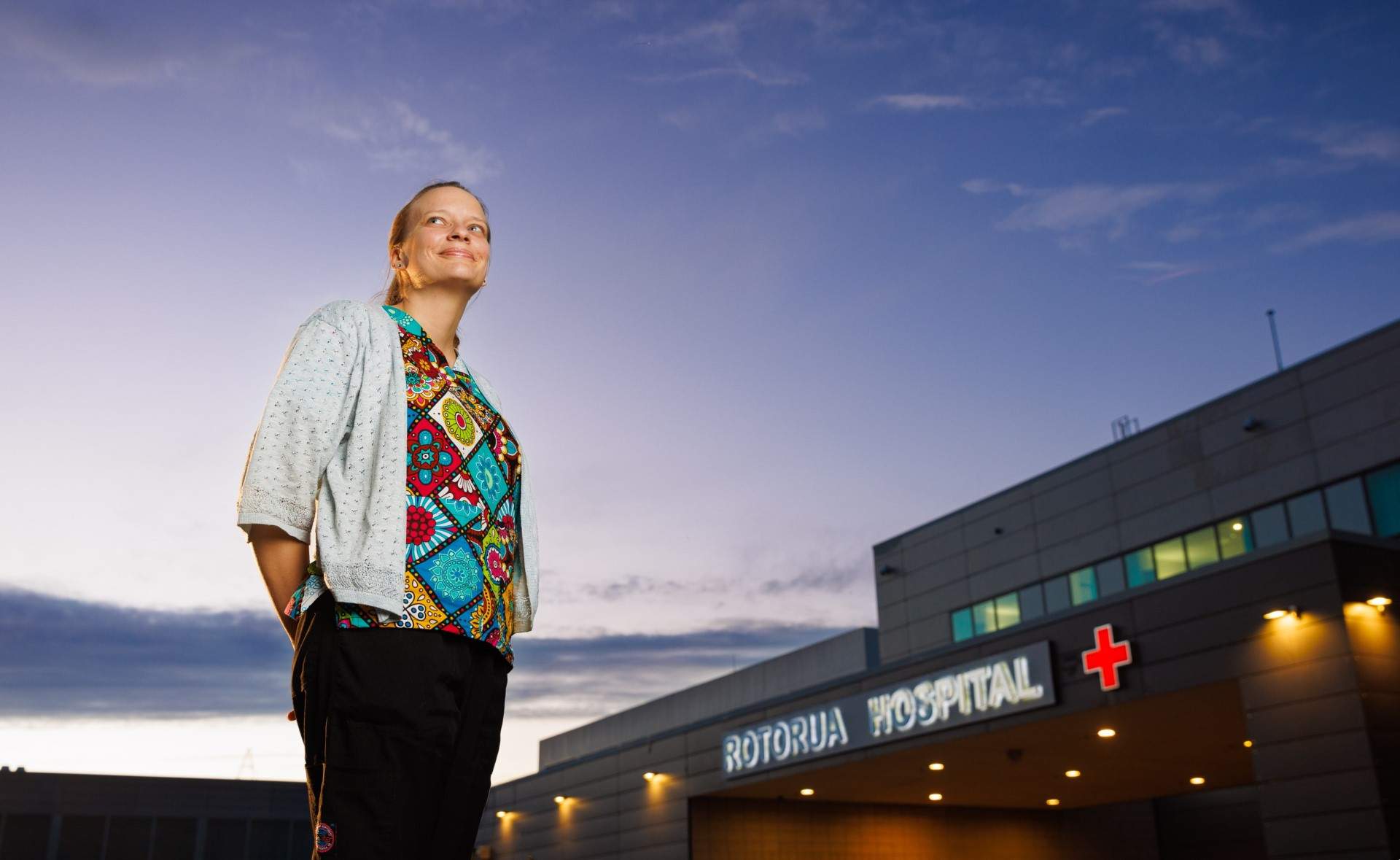Categories
Recent Articles
Rotorua doctor changing lives 13,000km away
From the heart of Rotorua's emergency department to the classrooms of Malawi, a determined local doctor has helped hundreds of underprivileged Malawian students fulfil their dreams of becoming medical professionals.
For ED doctor and UK expat, Tamsin Lillie, Rotorua is the home that chose her. But Malawi holds a special place in her heart, and it is where she spends several months of the year running the global charity, Medic to Medic.
“I visited Rotorua on holiday in 2011 and I always got this feeling that I would be back one day. After I finished uni, I was looking for something new and sent out my CV to hospitals in Australia and New Zealand. Rotorua Hospital was one of the only ones that replied, so I have always felt like Rotorua chose me.

“While Rotorua is very much my New Zealand home, I also spend months at a time in Malawi, where we help students with the academic potential, but who are living in poverty, to go to university and train in healthcare.”
During her university placement there, Tamsin discovered that while Malawi and its people were beautiful, they lived in economic deprivation, with most of the population surviving on just $2 a day.
Compounding this, the country has a severe shortage of medical professionals – roughly one doctor for every 50,000 people – resulting in some of the worst health outcomes in the world.
Driven to help, Tamsin became involved with Medic to Medic while still at university, becoming its CEO in 2014.
“When you hear about healthcare within low resource settings, you think of diseases like malaria, TB, and HIV, but what makes the situation worse is that they also do not have a health worker to drive those interventions and increase access to medical care.
“The work we do with Medic to Medic is multi-layered because we’re not just giving a child treatment for malaria, we’re helping to train a health worker, who will then be able to treat patients in their community for the duration of their career,” Tamsin says.
“At the same time, we’re helping a young person who's talented, got the ambition, but just not the means to go to university. And that's life changing for them, and their family, who they can then support by helping their siblings go to school.”
Today, 210 bright, ambitious students have graduated thanks to the sponsorship of Medic to Medic and are now working in healthcare – more than 90 per cent staying within their own communities to provide medical care.
“Every individual who graduates is a huge success story and we are so proud of what they have achieved.
“For me, the inspiring people are the Malawians who get up every day and have all these challenges thrown at them and still want to want to keep progressing with their ambitions.
“It would be a lot easier sometimes to just throw in the towel, but they keep going and thriving. I’m inspired by them every day.”
Medic to Medic primarily operates on fundraising efforts, one of which helps Rotorua locals recycle the “unrecyclable” through TerraCycle.
“I started using TerraCycle as a fundraiser as I found it to be a lot easier asking for people's waste than their money.
“TerraCycle partners with organisations to recycle hard-to-recycle waste – stuff that can’t go in your kerbside.
“Here in Rotorua, I accept coffee pods, hair products like hair dye plastic bottles and hairspray cans, and Colgate toothpaste tubes. I have a drop off point at the hospital and in front of my house and anyone can just pop by and drop off their waste.
“It's a small project, but it I feel like it's an important part of our fundraising going forward. We average about $200 a year from TerraCycle, which isn't a lot of money, but at the same time, that covers one student’s tuition fees for a semester so it’s definitely worthwhile.”
Tamsin says during her trips to Malawi, where many places don’t have any waste management, she saw first-hand the negative impact it has on the environment, so the projects go hand in hand.
Looking to the future, Tamsin says her main ambition for Medic to Medic is to make it sustainable, so she can launch new projects in other African countries.
“There’s always a pressure on fundraising and asking for donations and that can be challenging because everyone has their own passions that they want to contribute to.
“I’m currently looking at sustainable initiatives that will create some income for us and make that cycle easier.
“Ultimately, it would be great to start more programmes in Zambia and have the Malawi graduates act as country co-ordinators, running that programme, then once that becomes self-sustaining, moving into other areas. That’s a 20-year plan but that’s the dream.”
Learn more about Medic to Medic here.


